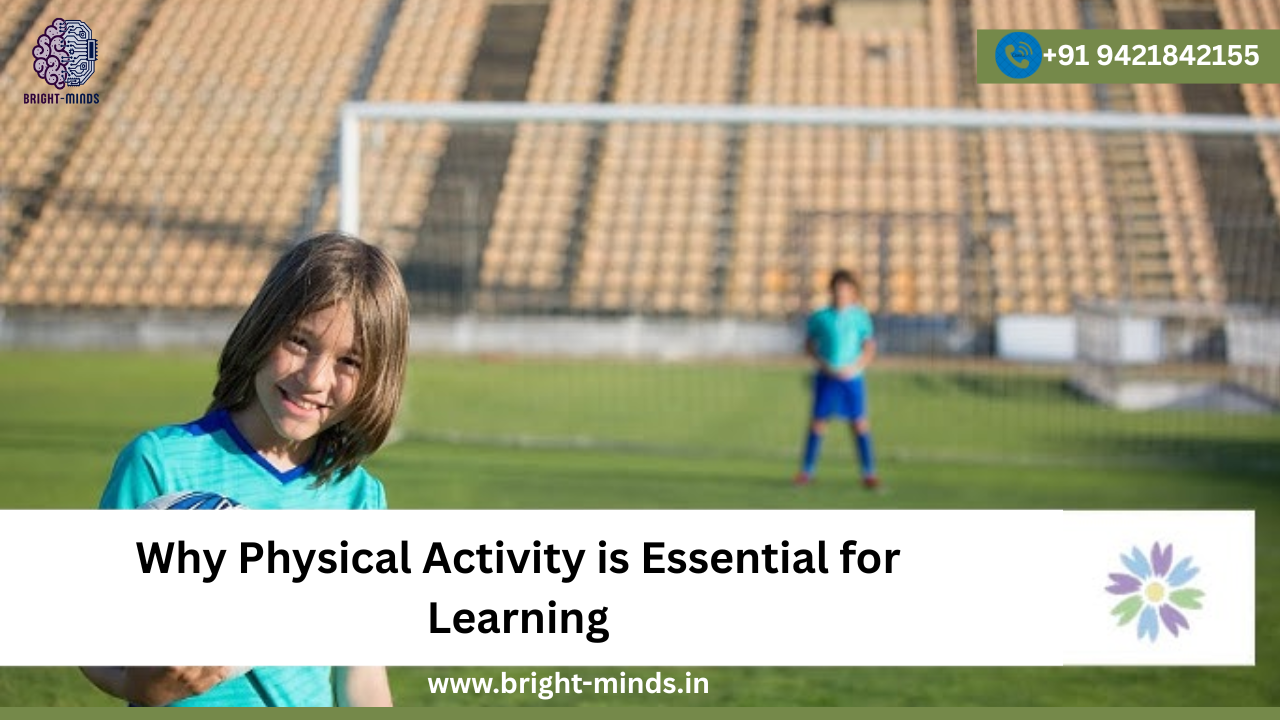- Improves Brain Function and Cognitive Skills
🧠 The science behind it
Why it works:
Research shows that physical activity increases blood flow to the brain, which in turn enhances cognitive functions like memory, focus, and problem-solving. Regular exercise stimulates the production of neurotransmitters like dopamine and serotonin, which are crucial for learning and concentration.
Tip: Encourage your child to take short physical activity breaks during study sessions to help them refocus and refresh their minds. - Boosts Mood and Reduces Stress
😊 Creating a positive learning environment
Why it matters:
Physical activity helps reduce stress by lowering cortisol levels, which can help your child stay calm and focused during learning. Exercise also stimulates the release of endorphins, chemicals in the brain that promote feelings of happiness and well-being. A positive mood leads to a more receptive mind, which is essential for absorbing new information.
Tip: Engage in fun physical activities like dancing, hiking, or even a quick game of catch after a study session to help alleviate stress and boost your child’s mood. - Enhances Focus and Concentration
🎯 Stay on task with regular movement
Why it’s effective:
Children who are physically active tend to have better attention spans. Regular exercise can help improve their ability to focus and stay on task in both the classroom and at home. It’s no surprise that schools with daily physical activity programs often report better academic performance from students.
Tip: Help your child incorporate regular physical activity into their daily routine—like a morning jog or stretching exercises—before starting homework to enhance their focus. - Promotes Better Sleep
🌙 Rest is essential for learning
Why it’s important:
Physical activity not only tires the body but also promotes healthy sleep patterns. Exercise increases the amount of deep sleep children get, which is crucial for memory consolidation and brain development. Adequate rest is directly linked to improved learning, as the brain processes and stores new information during sleep.
Tip: Encourage your child to engage in physical activity during the day (but not too close to bedtime) to promote a restful night’s sleep, which will in turn help them retain information learned during the day. - Develops Social Skills and Emotional Resilience
🤝 Learning teamwork and coping with challenges
Why it’s valuable:
Physical activities, especially team sports or group games, teach children important life skills like teamwork, communication, and conflict resolution. These social interactions boost emotional intelligence and help children develop resilience, which is necessary for overcoming academic and personal challenges.
Tip: Sign your child up for sports or group activities where they can learn to work with others, and encourage them to approach each activity with a positive attitude, regardless of the outcome.
💡 How to Encourage Physical Activity for Better Learning
- Incorporate movement into study sessions: Encourage your child to take breaks every 20-30 minutes to do something physical, whether it’s stretching, jumping jacks, or even a quick walk around the block.
- Set up family exercise time: Make physical activity a fun family bonding experience. Go for a bike ride, take a hike, or even play an active video game together.
- Make it fun and enjoyable: Choose activities that your child enjoys, whether it’s sports, dancing, swimming, or playing in the park. The more fun they have, the more likely they are to engage in physical activity regularly.
- Create a routine: Set aside a specific time each day for physical activity, so it becomes a regular part of your child’s routine.
Tip: Try to ensure that physical activities are enjoyable and not seen as a chore, as that will encourage consistent participation.
🏫 Why Physical Activity Matters at Bright-Minds
At Bright-Minds, we understand that learning is not just about sitting at a desk. Physical activity plays a critical role in developing the brain, boosting mood, and enhancing focus. We believe in a balanced approach to learning that incorporates movement to keep young minds sharp and ready to absorb new information.
🌟 Final Thoughts
Physical activity is more than just a way to stay fit—it’s an essential component of a child’s learning journey. Regular exercise not only supports brain function and emotional well-being but also enhances focus, concentration, and social skills. By encouraging physical activity, you’re providing your child with the tools they need to succeed academically and emotionally.
You might be interested in this:-

